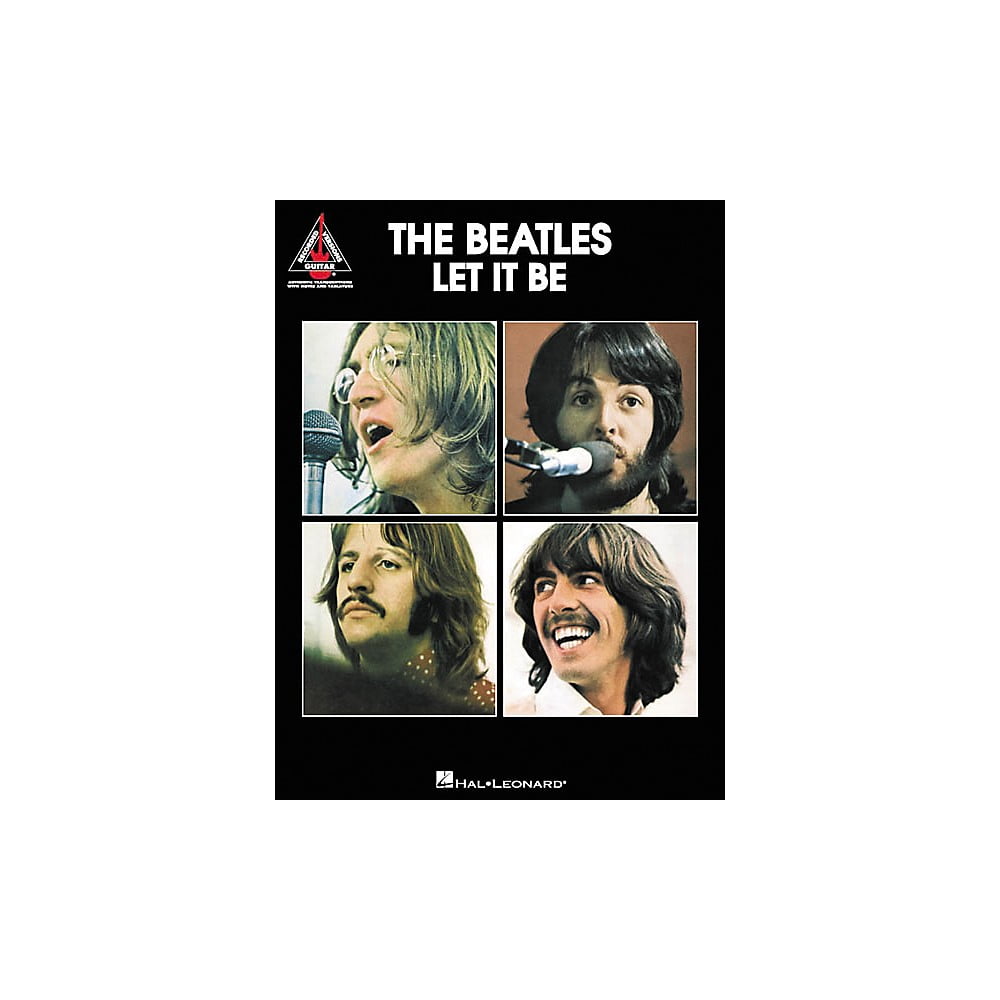

Most arresting is the rehearsal of Harrison’s “Something,” where he says he just can’t get the line that ultimately became “Attracts me like no other lover.” “Just say whatever comes into your head,” Lennon suggests.

Much more interesting is the “Get Back - Rehearsals and Apple Jams” disc, where we hear rough, embryonic versions of songs that later turned up on “Abbey Road” and even the solo albums (Lennon’s “Gimme Some Truth” and Harrison’s “All Things Must Pass”).

1 single, before launching into “Let It Be.”
The Beatles Let It Be Zip full#
So herein is the best of the rest: a full disc called “Apple Sessions” of loose, alternate takes of songs from the album, with the group chatting and joking around, vamping on “Maggie Mae” and the Everly Brothers’ “Wake Up Little Susie,” McCartney throwing in a snippet of “Please Please Me,” the group’s first No. And as the countless hours of bootlegs from these sessions that have emerged over the decades prove, that’s even true of the Beatles. And anyone who’s watched a band rehearse for more than 15 minutes knows that with the possible exception of Prince (who usually rehearsed as if he were onstage at Madison Square Garden on New Year’s Eve), most of the time they are excruciatingly dull. While the relatively small amount of new material was met with howls of outrage from completist-leaning fans when the tracklist was first announced, it’s actually a relief - a refreshingly concise distillation of the best outtakes from the weeks of sessions, which were essentially rehearsals. Thus, it’s surprising that amid those six discs, just two-and-a-half contain genuinely unreleased material, along with remastered and Blu-ray versions of the original album as well as the first of the two earlier, rejected versions of it (which has been circulated on bootlegs for decades).
The Beatles Let It Be Zip series#
Still, the Beatles recorded hundreds of hours of music during the long, plodding January 1969 sessions for this album, and although archivists have dug into the well before - exhuming bits for the “Beatles Anthology” series and the McCartney-helmed, de-Spectored “Let It Be… Naked” revisionist album in 2003 - they’ve given it the full museum treatment here, producing not just this lavish, 6-CD boxed set but also the six-hour “Get Back” documentary (airing on Disney+ next month) and a coffee-table book that includes hundreds of photos and transcriptions of apparently every interesting bit of dialogue from the film reels (there’s a different, exhaustively detailed hardcover book accompanying this boxed set). Ultimately, despite several classic songs, “Let It Be” resides in the lower echelon of the Fab Four canon, along with the rushed “Beatles for Sale” and their fledgling 1963 debut. Even though it wasn’t actually the final Beatles album to be recorded - work began on “Abbey Road” several weeks after this - it was the last one to be released. The group rejected two early versions of the album and Lennon finally gave the tapes to “Wall of Sound” producer Phil Spector, who sonically overhauled - some say sonically mauled - the entire thing, adding an orchestra and/or choir to several songs (hence the legal letter from McCartney). Many factors contributed to the album’s often dispirited vibe: Except for Ringo, the bandmembers had been together since their early teens - residing in a nearly unprecedented fishbowl of fame for the previous five years - and tempers were wearing thin, a situation exacerbated by the fact that for this project, they were trying to find creative inspiration first thing in the morning during a typically miserable English winter while their every move was recorded by a film crew. Intended as a rough, back-to-the-roots “art as it happens” film-and-album document of the Beatles’ creative process, it ended up being a requiem. Of course, the men doth protest too much: The group’s high standards guaranteed that there is no such thing as a bad Beatles album, but “Let It Be” is far from their best work. Fifty-one years later, how do we appraise “Let It Be,” the Beatles’ swan song, the document of their breakup, the one that the bandmembers themselves initially disliked so much that Paul McCartney took legal action and John Lennon dubbed it a salvage job from “the shittiest load of badly recorded shit - and with a lousy feeling to it - ever”?


 0 kommentar(er)
0 kommentar(er)
